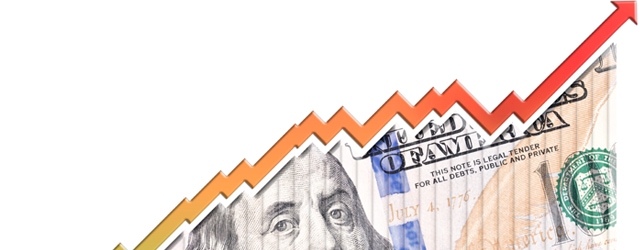A strong dollar is wreaking havoc on indebted emerging markets.

The dollar’s mid-December surge to a 14-year high is pressuring currencies pegged to the greenback, while making it more difficult for emerging markets countries with weakening currencies to repay increasingly expensive, dollar-denominated debt. Central banks in most of the Arab Gulf countries raised their interest rates within hours of the Federal Reserve’s rate increase, seeking to protect the value of their currencies in an environment of low oil prices and weak economic growth.
“Dollar pegs in the Gulf will remain in place, but that means policymakers will be forced to follow the Fed and hike interest rates,” says Jason Tuvey, Middle East economist at Capital Economics. “Looking ahead, we think the Fed will raise interest rates more aggressively than markets currently anticipate, and that yields on dollar bonds in the Gulf are likely to rise.”
Smashing the dollar pegs and devaluing their currencies wouldn’t help these countries compete in global markets, since their oil exports are priced in dollars. Weaker currencies, however, would increase the cost of imports and worsen inflation.
Meanwhile, in December the People’s Bank of China set the benchmark rate of the renminbi at its weakest level since 2008. That makes it more difficult for Hong Kong to maintain its dollar peg, although it has plenty of ammunition to head off speculative attacks on its currency, with more than US$360 billion of foreign reserves. As the renminbi weakens, it becomes more expensive for mainland Chinese to visit Hong Kong and shop there.
Dollar-denominated bond issuance in Asia soared to a record of more than $150 billion in the third quarter, as corporations and financial institutions rushed to borrow ahead of the Fed’s rate hike. A repeat of the 1997 Asian currency and financial crisis is unlikely, but Pimco and other asset managers have warned that risks for investors are rising with growing debt levels and falling Asian currencies. Companies in China and India have taken on the most debt, according to Pimco.



